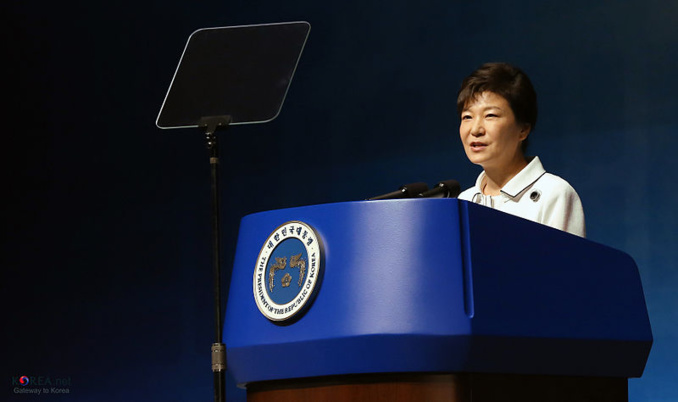Investigators of Seoul Prosecutor Office today went through offices of ten companies and government agencies located in Seoul and other cities in South Korea. The searches took place in the third and the fifth-largest South Korean conglomerate SK Group and Lotte Group. Investigators seized computer hard drives and all documents relating to free trade. According to the Prosecutor Office, these companies could have made large donations to two nonprofit foundations Mir and K-Sports, controlled by Choi Soon-sil, a close friend of President of South Korea. She, in response, influenced the government's decision to grant licenses to open duty-free shops in Seoul. According to prosecutors, the conglomerates donated a total of $ 13.6 million in Choi Soon-sil’s funds.
Ministry of Strategy and Finance and the Customs Administration, controls operation of duty-free companies, have also been searched. According to South Korean media, in April 2016 Customs Administration announced its intention to issue four licenses to open duty free shops in the country’s capital. At that, three of these licenses were to be given to large companies. Lotte Group and SK Group are called among the most likely recipients of these licenses.
This month, offices of the largest South Korean conglomerate Samsung Group were twice visited by investigators. The watchdogs were checking information on similar donations in Choi Soon-sil’s funds. Last Sunday, Choi Soon-sil was accused in a cozy deal with her friend, South Korean President Park Geun-hye. She forced 53 companies to make donations in her funds for a total sum of $ 65.7 million. Meanwhile, the country now is being in a state of ferment. Locals are demanding ouster of President Park Geun-hye.
South Korea is an example of a "culture of transparency". In 1999, it introduced a program called "OPEN". This is an online system to control applications of citizens considered by city administration officials. The program has made quite a sensation among national anti-corruption programs.
Another South Korean law "On Combating Corruption", which entered into force on 1 January 2002, also received international recognition. The law states that any adult citizen of the country has a right to initiate an investigation of corruption. The country’s committee on audit and inspection (main anti-corruption body in the country) is required to start an investigation after receiving any application.
This "pettiness" gives evidence of two things. Firstly, South Korea closely monitors situation with corruption in the country. This fight actively and successfully involves not only public authorities, but also media and civil society. Secondly, venturesome search for spots on an opponent’s reputation is a very effective way of political debates in the East Asian "culture of shame". Sometimes, even fairly unproven accusations are enough to defame anyone: the very fact of their appearance leads to actual "civil penalty" of a politician.
source: reuters.com
Ministry of Strategy and Finance and the Customs Administration, controls operation of duty-free companies, have also been searched. According to South Korean media, in April 2016 Customs Administration announced its intention to issue four licenses to open duty free shops in the country’s capital. At that, three of these licenses were to be given to large companies. Lotte Group and SK Group are called among the most likely recipients of these licenses.
This month, offices of the largest South Korean conglomerate Samsung Group were twice visited by investigators. The watchdogs were checking information on similar donations in Choi Soon-sil’s funds. Last Sunday, Choi Soon-sil was accused in a cozy deal with her friend, South Korean President Park Geun-hye. She forced 53 companies to make donations in her funds for a total sum of $ 65.7 million. Meanwhile, the country now is being in a state of ferment. Locals are demanding ouster of President Park Geun-hye.
South Korea is an example of a "culture of transparency". In 1999, it introduced a program called "OPEN". This is an online system to control applications of citizens considered by city administration officials. The program has made quite a sensation among national anti-corruption programs.
Another South Korean law "On Combating Corruption", which entered into force on 1 January 2002, also received international recognition. The law states that any adult citizen of the country has a right to initiate an investigation of corruption. The country’s committee on audit and inspection (main anti-corruption body in the country) is required to start an investigation after receiving any application.
This "pettiness" gives evidence of two things. Firstly, South Korea closely monitors situation with corruption in the country. This fight actively and successfully involves not only public authorities, but also media and civil society. Secondly, venturesome search for spots on an opponent’s reputation is a very effective way of political debates in the East Asian "culture of shame". Sometimes, even fairly unproven accusations are enough to defame anyone: the very fact of their appearance leads to actual "civil penalty" of a politician.
source: reuters.com



















